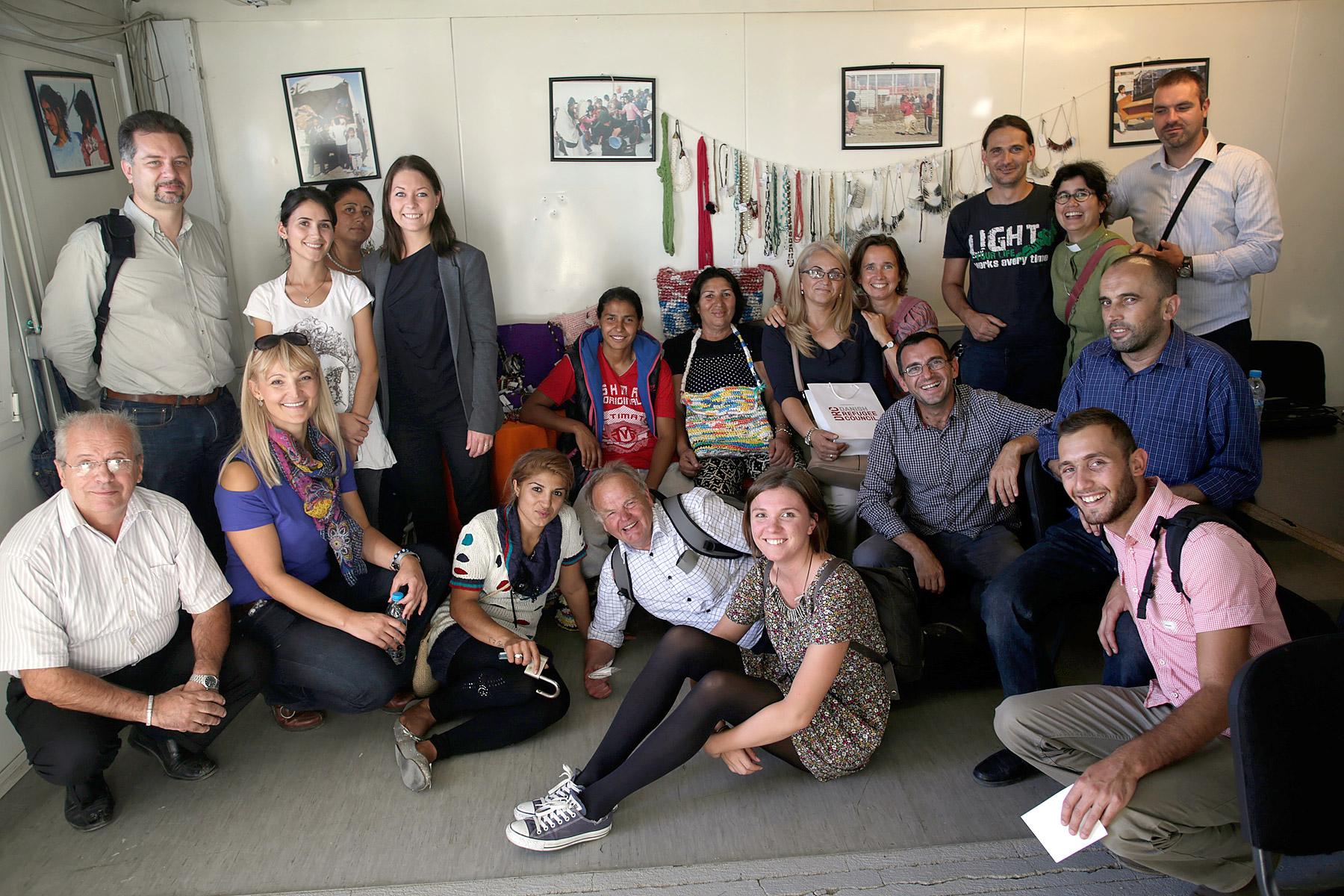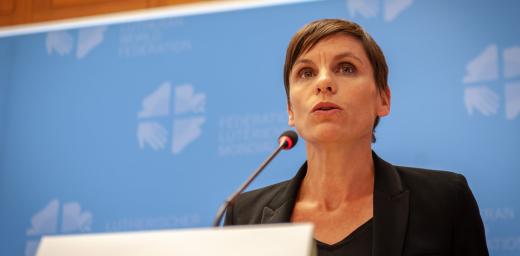12 recommendations to advocate justice and dignity for Roma people

Church of Sweden delegation visiting income generating projects in Southern Mitrovice/a, Kosovo. Photo: Joakim Roos
LWF and CCME issue action points for churches and church-related bodies
(LWI) – A guideline on how to shape relations with Roma in Europe has been issued by diaconal workers and churches’ representatives from European member churches of The Lutheran World Federation (LWF) and the Churches’ Commission for Migrants in Europe (CCME). The 12 recommendations are meant as a framework for practical work in congregations and churches, says Rev. Dr. Eva-Sibylle Vogel-Mfato, Area Secretary for Europe in the LWF Department for Mission and Development (DMD).
“We are providing concepts”, she says. “The practical implementation has to happen locally, depending on the possibilities and the situation a community finds itself in.” This could mean focusing on Roma children and their family situation in a congregational kindergarten, convincing neighbors to take part in local festivities or offering a telephone hotline for special needs. “Each community has different gifts” she says, “some people are good at providing pastoral care, some know how to address practical needs, and there might be someone who knows how to form networks and raise awareness.”
Recognizing our own history
Roma has been an advocacy focus for many years. The LWF Assembly in Stuttgart 2010 passed a resolution calling upon member churches to “contribute to the empowerment and integration of socially disadvantaged ethnic groups as well as to the development of socially inclusive practices.” Even if ministry among the Roma have been established, as well as several projects targeting this ethnic group, “much more effort is needed if this problem is to be effectively addressed” states the resolution.
CCME has also been working on advocacy for Roma inclusion at the European level since 2001, focusing on the EU Framework for national strategies for the integration of Roma in the past 3 years. “History, including our own churches’ history with regard to relations to Roma minorities has many dark shades,” says CCME General Secretary Doris Peschke. “Recognizing where we have done wrong and where we have done right, is important to in order to reconcile the different memories of our shared past to shape the joint future as equal citizens.”
Enhance knowledge
The recommendations now issued follow up on that call. Meeting in Frankfurt, Germany, 22-24 November, 20 representatives of European member churches of the LWF and CCME dedicated a conference to the topic. All of the participants, some themselves Roma, have had practical experience from working with Roma in educational and advocacy projects.
A main point in the recommendations is that knowledge about the culture and history of the minority Roma communities needs to be enhanced in both church and society in order to stop discrimination and marginalization. The recommendations include 12 action points from practical aspects of including Roma into congregational and society life leading to media and advocacy against anti-ziganism.





